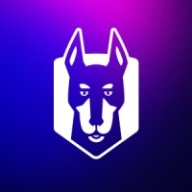

SonarQube and Snyk are competitors in the software security and code quality category. SonarQube is favored for its extensive code analysis and CI/CD pipeline integrations, while Snyk is preferred for its ease of use and comprehensive vulnerability detection.
Features: SonarQube offers extensive programming language support, custom coding rules, and detailed code analysis, which integrates well with CI/CD pipelines. Its code duplication checks and in-depth security metrics enhance its feature set. Snyk emphasizes vulnerability detection and container security, with strong integration capabilities within development environments and a comprehensive vulnerability database.
Room for Improvement: SonarQube could improve its security feature depth, ease of integration with tools like JIRA, and reduction of false positives. Its multi-language support can be cumbersome. Snyk lacks in static and dynamic analysis compared to competitors and would benefit from enhanced documentation and broader integration capabilities with additional languages and IDEs.
Ease of Deployment and Customer Service: SonarQube is mainly deployed on-premises or in hybrid clouds, supported by a strong open-source community with active forums. Snyk is easier to deploy in public clouds, offering robust customer service and highly rated integration capabilities, though its documentation needs improvement.
Pricing and ROI: SonarQube provides a free open-source version with additional costs for features and plugins, considered reasonable especially for smaller teams. Snyk's licensing is based on the number of developers and is higher priced, justified by its extensive features. Both are seen as good ROI solutions, enhancing code security and quality, but Snyk's premium features may lead to greater costs.
I can see that Snyk saves the costs of hiring security developers for vulnerability scanning and security checks, as that responsibility is now managed by Snyk.
It is easily integrable with the CI/CD pipeline and supports multiple projects with its extensive plugin options.
I have seen a return on the investment from SonarQube Server (formerly SonarQube) because the value it adds relates to static code analysis and vulnerability assessments needed for our FDA approval process.
We see productivity increasing based on the fact that the code review is mostly automated, allowing the developer to fix the code themselves before assigning it to someone else to review, thus receiving that ROI.
Our long-standing association has ensured smooth communication, resulting in favorable support experiences and satisfactory issue resolution.
Their response time aligns with their SLA commitments.
We could understand the implementation of the product and other features without the need for human interaction.
The community support is quite effective.
The customer service and support for SonarQube Cloud are responsive and helpful.
Integrating it into different solutions is straightforward.
Snyk allows for scaling across large organizations, accommodating tens of thousands of applications and over 60,000 repositories.
Snyk is very scalable and can handle my organization's growth and changing needs.
There are limitations, and it seems to have fewer capabilities than Veracode.
It has been used in multiple projects and performs well.
I would rate the scalability of SonarQube Server as a 10 because we can configure the server to scan multiple projects based on the number of lines.
I think SonarQube Server (formerly SonarQube) is stable, and we did not face any problems unless there was a power outage or if the LAN cable was plugged out.
From my team's feedback, it is almost an eight out of ten.
It is a quite stable solution.
It lacks the ability to select branches on its Web UI, forcing users to rely on CLI or CI/CD for that functionality.
The inclusion of AI to remove false positives would be beneficial.
As we are moving toward GenAI, we expect Snyk to leverage AI features to improve code scanning findings.
I would like to see SonarQube Cloud provide more detailed solutions for fixing code issues, especially solutions related to CVEs.
I need a solution that can bring together three key areas: vulnerabilities, static scanning, and misarchitecture.
Static code analysis is good, but the product lacks dynamic code scanning capabilities, an area where Veracode excels.
Snyk is recognized as the cheapest option we have evaluated.
After negotiations, we received a special package with a good price point.
Snyk is less expensive.
I would rate the pricing for SonarQube Server (formerly SonarQube) as an 8, where 1 is very cheap and 10 is very expensive, because Coverity is very expensive, and while SonarQube is not cheap, it is still less expensive than Coverity.
They always offer around a two-year contract, but we always take a one-year contract because it's expensive.
The freemium version of SonarQube Server offers excellent value, especially compared to the high costs of Snyk.
Our integration of Snyk into GitHub allows us to automatically scan codebases and identify issues, which has improved efficiency.
Snyk helps detect vulnerabilities before code moves to production, allowing for integration with DevOps and providing a shift-left advantage by identifying and fixing bugs before deployment.
Snyk has positively impacted my organization by improving the security posture across all software repositories, resulting in fewer critical vulnerabilities, more confidence in overall product security, and faster security compliance for project clients.
Some of the static code analysis capabilities are the most beneficial.
I find SonarQube Cloud very easy to use and simple to integrate initially.
It gives precise reports compared to Coverity and has a slightly lower number of false positives.
| Product | Market Share (%) |
|---|---|
| SonarQube | 16.9% |
| Snyk | 5.6% |
| Other | 77.5% |

| Company Size | Count |
|---|---|
| Small Business | 21 |
| Midsize Enterprise | 9 |
| Large Enterprise | 21 |
| Company Size | Count |
|---|---|
| Small Business | 41 |
| Midsize Enterprise | 24 |
| Large Enterprise | 79 |
Snyk excels in integrating security within the development lifecycle, providing teams with an AI Trust Platform that combines speed with security efficiency, ensuring robust AI application development.
Snyk empowers developers with AI-ready engines offering broad coverage, accuracy, and speed essential for modern development. With AI-powered visibility and security, Snyk allows proactive threat prevention and swift threat remediation. The platform supports shifts toward LLM engineering and AI code analysis, enhancing security and development productivity. Snyk collaborates with GenAI coding assistants for improved productivity and AI application threat management. Platform extensibility supports evolving standards with API access and native integrations, ensuring comprehensive and seamless security embedding in development tools.
What are Snyk's standout features?Industries leverage Snyk for security in CI/CD pipelines by automating checks for dependency vulnerabilities and managing open-source licenses. Its Docker and Kubernetes scanning capabilities enhance container security, supporting a proactive security approach. Integrations with platforms like GitHub and Azure DevOps optimize implementation across diverse software environments.
SonarQube leads automated code review, enhancing code quality and security in AI-driven SDLCs. It analyzes pull requests, providing developers with actionable feedback and AI-driven fixes before code merges. Trusted by top enterprises, it supports SaaS and self-managed deployments.
SonarQube supports a wide range of programming languages and integrates seamlessly with CI/CD tools like Jenkins. It is renowned for its static code analysis, code coverage, and security vulnerability detection. While its open-source foundation and scalability are praised, users seek enhanced integration across multiple languages, better security features, and improved documentation. Despite challenges, its ability to automate code inspections and ensure compliance with coding standards makes it essential in software development processes, facilitating continuous improvement.
What are the most important features?In industries like finance, healthcare, and automotive, SonarQube is leveraged for static code analysis, automating code inspections, and ensuring compliance with stringent standards. Teams integrate it into their CI/CD pipelines to maintain high-quality code, identify security vulnerabilities, and enhance code maintainability.
We monitor all Application Security Tools reviews to prevent fraudulent reviews and keep review quality high. We do not post reviews by company employees or direct competitors. We validate each review for authenticity via cross-reference with LinkedIn, and personal follow-up with the reviewer when necessary.